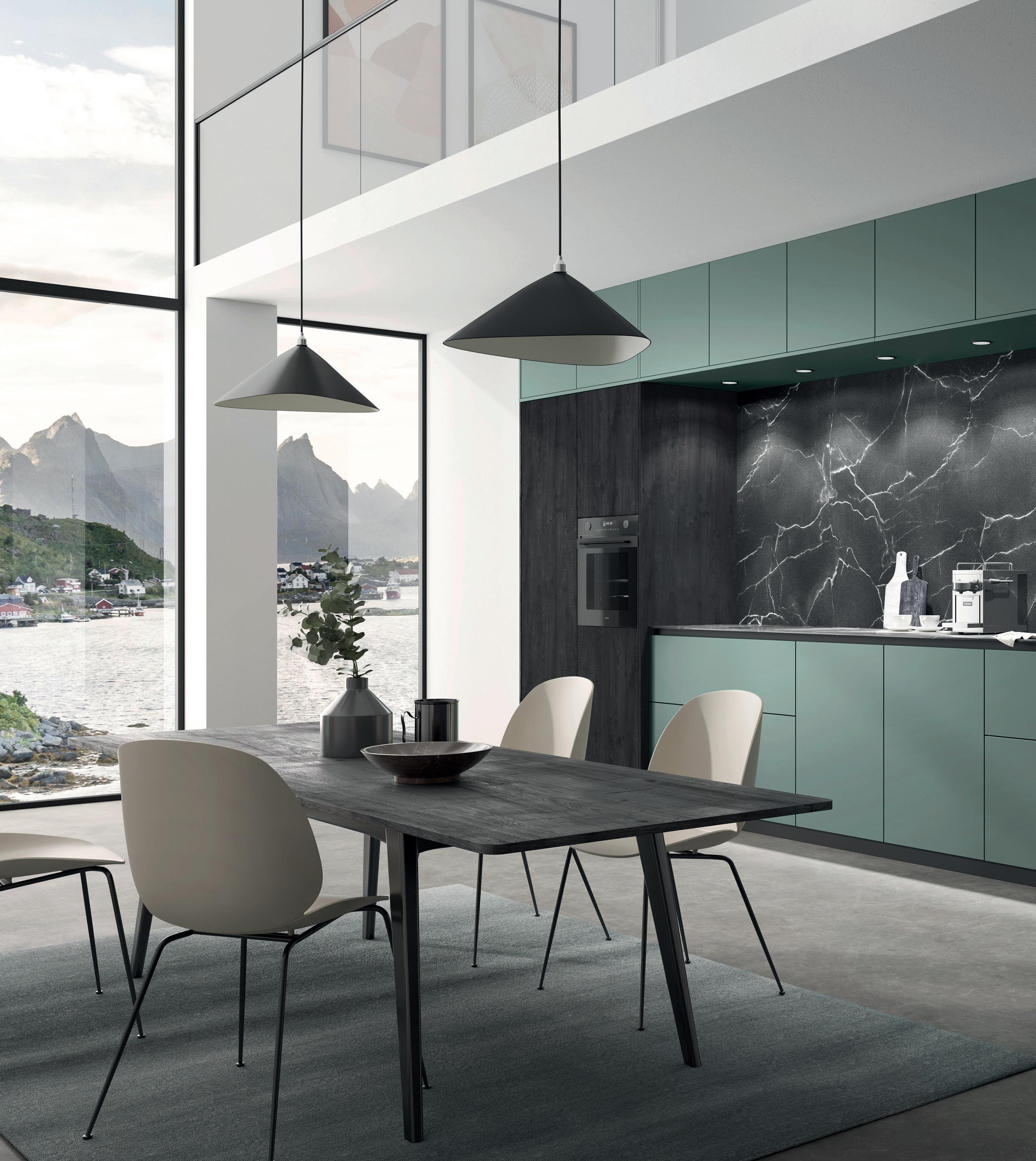
5 minute read
SUSTAINABILIT Y
The sustainable heart of the home
Matt Phillips

Matt Phillips from Rotpunkt and Paul Illingworth from Abode discuss sustainability as intrinsic to their processes, kitchen product offerings and customer lifestyle
Mindful consumerism continues to be a priority for anyone seeking to make a difference and address climate change in the home - and the ripple-effects permeate every aspect of real estate,” explains Matt Phillips, Head of UK Operations, Rotpunkt Küchen (Rotpunkt).
Indeed, Rotpunkt has been of this opinion for some time, and has increasingly considered
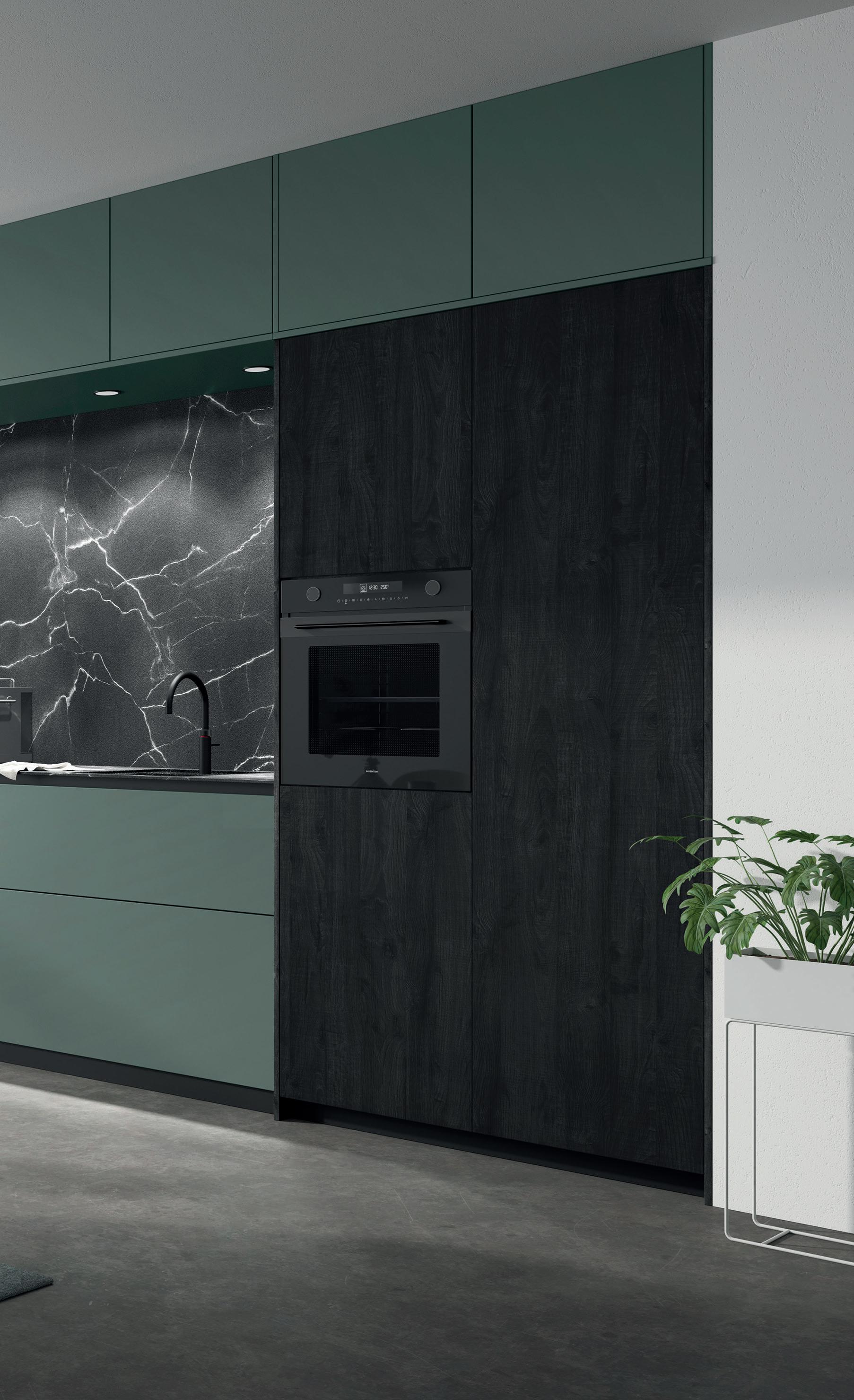
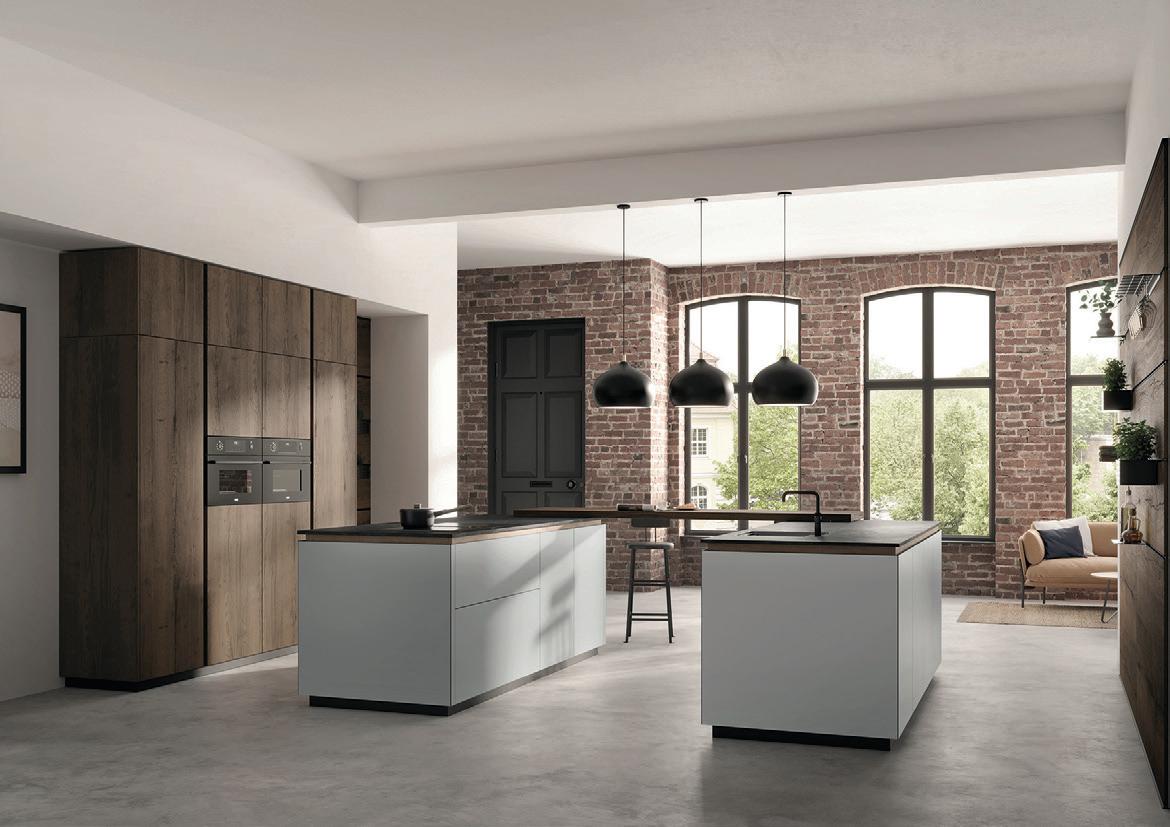
the impact its decisions and actions have on the climate and environment. In recent years, the organization has questioned how, as a manufacturer of kitchen furniture, it can reduce its carbon footprint.
“Big ticket items, like the kitchen, can help to reduce environmental impact and promote a greener way of life,” continues Matt. By choosing brands that align with their values, shoppers are voting with their wallets for the kinds of businesses they want in the world. “As such, the latest furniture trends are embracing new design possibilities that use recycled materials, thereby proving to builders and developers, the worth and value of renewable wood alternatives, and positioning them as eco-friendly options that sacrifice neither style nor quality,” expounds Matt.
“For example, there is much greater consumer understanding about Volatile Organic Compounds (VOCs) coming to the fore,” says Matt. “This is leading to a drive to ensure the lowest possible formaldehyde emissions, thereby promoting a better indoor climate. In fact, sustainability and wellness trends are converging to elevate home interiors, so that users can enjoy a premium experience which fully caters to both practical needs and enhanced living,” he continues.

Paul Illingworth
Paul Illingworth, Design Manager at Abode agrees that the kitchen is fundamental to sustainable living. “Sixty-eight percent of consumers state that the kitchen now holds great significance in terms of day-to-day living and improved personal wellbeing. Given that water management is intrinsic to the smooth running of this key family space, there is a prevalent market trend towards taps with strong design and eco credentials which can offer long-term rewards,” he explains. “By prioritizing sustainability, housebuilders and interior designers are demonstrating a range of innovations, which save time, money, resources and energy, and which satisfy the demands of end users,” Paul continues. Abode is an awardwinning designer and distributor of marketleading kitchen taps, sinks, bathroom taps and showering solutions that help to future-proof the home. Paul explains that practicality and luxury go hand in hand with sustainability considerations for today’s consumer. “There has been a strong growth in demand for filtered water taps as people continue to embrace healthier lifestyles. Life under lockdown encouraged many to reconsider their expenditure, creating a growing desire to make more sustainable choices such as investing in filtered water solutions for long-term efficiency in terms of healthier cooking, and drinking better quality water.”
Abode, like Rotpunkt, is keen to enhance the sustainability of its offering. Its new collection of water-efficient taps helps to limit water consumption by using up to 97 percent less water per minute than traditional models. The specially designed flow-limited aerators reduce the flow rate, but not the pressure.
“As conservation measures continue to influence both residential and contract interiors, we are finding that designed-in sustainability is a big topic right now and the trend to reduce energy is running in parallel with water-use efficiency. Eco laundry appliances, water-saving showers and toilets, and a range of specialist kitchen taps are now a major priority for the UK homeowner,
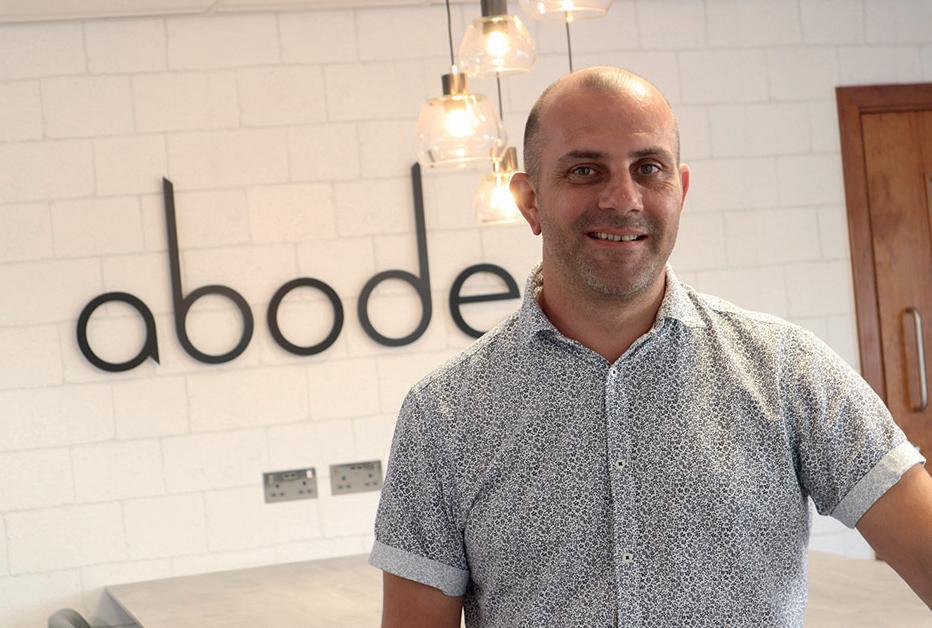

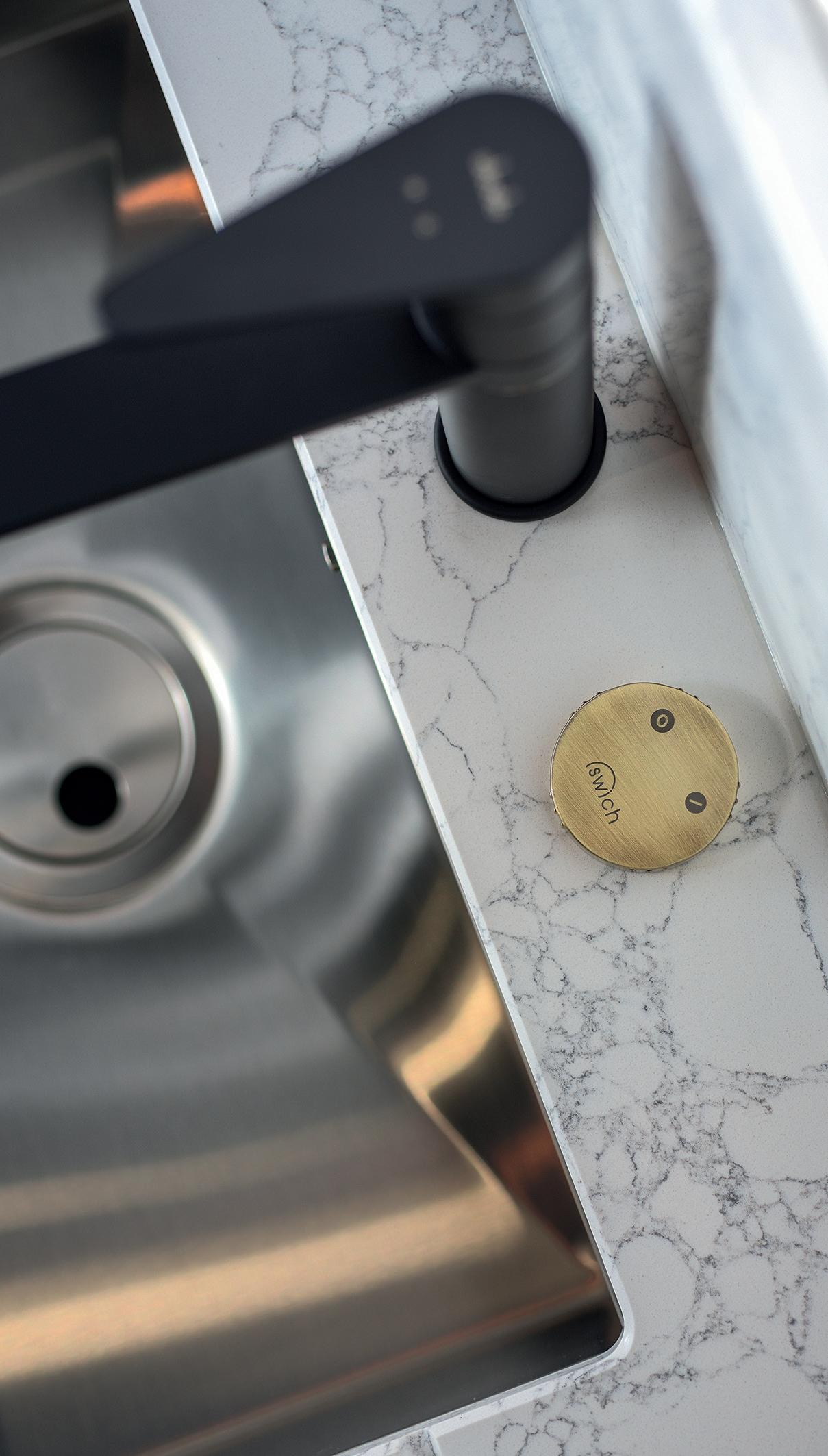
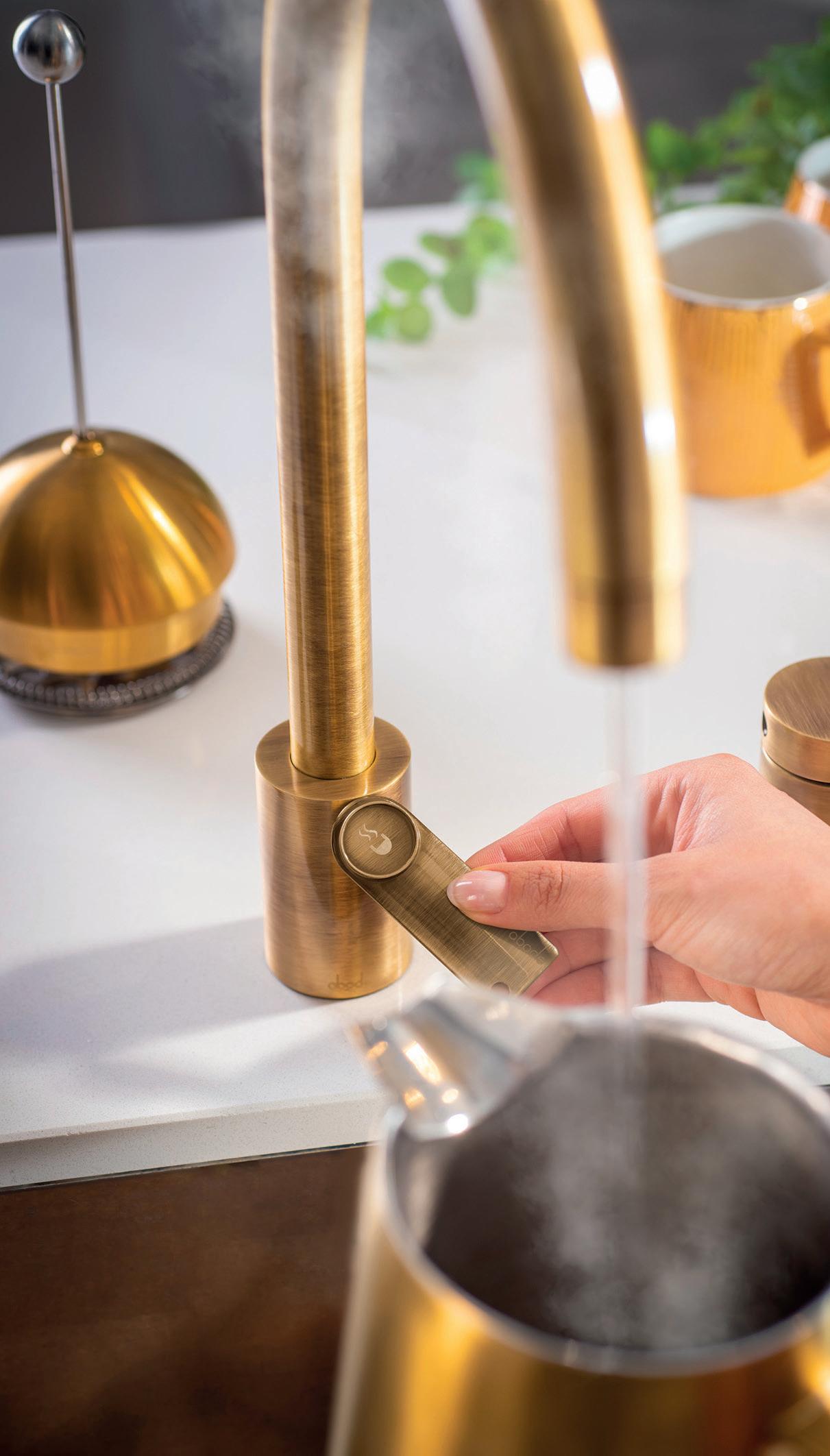
offering their own green rewards of reduced carbon footprint, energy and waste. The development market is therefore in a prime position to offer tangible benefits to the buyer by choosing sustainable products at the design and build phase, which in the long run, will lower energy consumption and help reduce utility bills for each occupant,” enthuses Paul.
To celebrate 15 years since it launched Swich, its exclusive and patented water filter system, Abode has crafted an anniversary edition, featuring an FSC-certified beechwood timber finish. Designed to transform a new or existing kitchen mixer into a filtered water tap, the Swich delivers a fresh supply of crystal clear, filtered water and can be retro-fitted or part of a new kitchen design.
Supporting the three Rs that currently define today’s eco-conscious home and lifestyle, the Swich reduces single use plastic, reuses sustainable materials and recycles redundant high resin filters via Abode’s unique filter recycle scheme.
Rotpunkt too is pivoting to even greener solutions in line with its ‘together to zero’ climate strategy to reduce carbon emissions at every stage of manufacture.
The organization is exploring how it can reduce its use of fresh wood to conserve valuable resources. “New technology is enhancing the kitchen living experience. Imitation metal, marble and timber finishes are providing a great alternative for achieving the latest kitchen designs without harming the environment,” explains Matt. “We are seeing a huge amount of creativity in laminate solutions, as replicating the look and feel of natural elements, like wood and stone, becomes increasingly sophisticated. Some finishes are almost indistinguishable from the real thing,” he enthuses.
Thanks to developments in manufacturing technology, these imitation finishes are lightweight, rendering them easier to transport and install, thereby reducing carbon emissions as well as creating savings associated with haulage costs.
Rotpunkt consistently aims to streamline its processes, by assessing how the proportion of fresh wood used in its chipboard can be reduced, how material efficiency can be improved and production waste better managed. All Rotpunkt furniture is designed and created with the aim of reducing carbon emissions at every stage of manufacture.
Both businesses are seeking to achieve the gold standard in eco-friendly modern living to be able to offer a greener alternative for homeowners that continues to support more sustainable product choices in the mainstream. F






